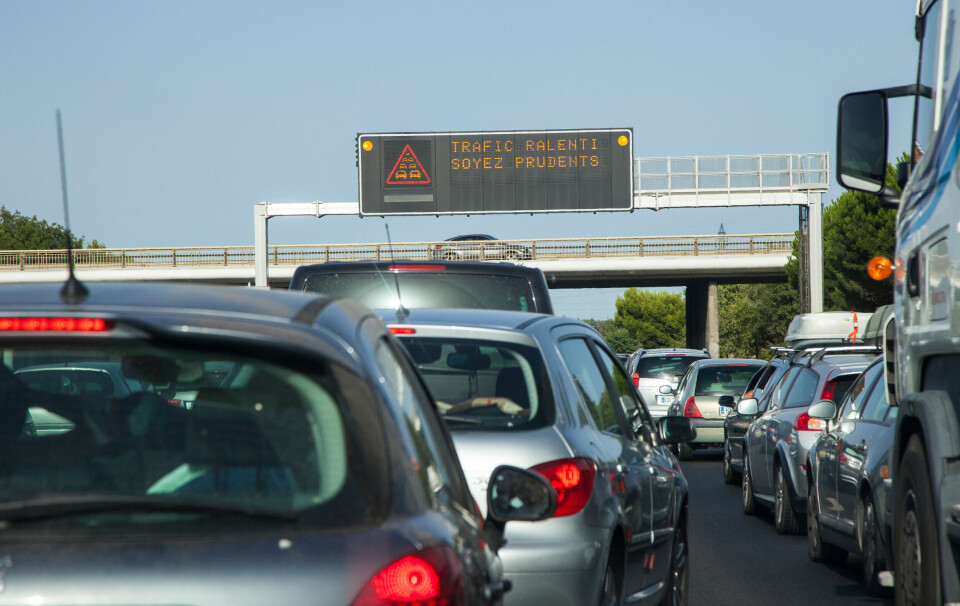-
New census data shows French population growth: how does your area fare?
Strong growth along Atlantic and Mediterranean coasts attributed to internal migration
-
French 2026 budget fails: special law needed to levy taxes
The law will now be required to keep spending at current levels and prevent US-style shutdown
-
Farming unions call for ‘Christmas truce’ as blockades continue
Mercosur trade deal vote has been postponed to January
Think tank criticises France over Covid-19 management
The Lowy Institute has ranked countries on how successfully they have managed the crisis, with New Zealand in first place and France in 73rd

Australian think tank the Lowy Institute released its Covid Performance Index last week, comparing how successfully different countries have managed the health crisis – and classed France 73rd out of 98 countries studied.
The only European countries to rank lower were the Netherlands (75), Spain (78), Romania (81) and the Ukraine (90). The UK was ranked in 66th place and the US in 94th.
This comes as Prime Minister Jean Castex told reporters on January 30 that the health situation in France was currently "better" than that of its European neighbours.
While France has - so far - escaped a third national confinement, strict health restrictions are currently in place. Around 20,000 positive test cases are being recorded every day and France has the seventh highest Covid death toll in the world, with over 75,000 deaths recorded.
New Zealand comes out on top
The study based its ranking on six criteria: confirmed cases, confirmed deaths, confirmed cases per million people, confirmed deaths per million people, tests per 1,000 people, and confirmed cases in proportion to tests.
New Zealand came first in the ranking according to the six measures, but researchers said the country also met multiple other criteria for good management during the crisis.
Similar to six other countries in the top ten, New Zealand has no land borders with other countries. It also has a relatively small population of 4.5 million people; countries with fewer than 10 million inhabitants “consistently outperformed” others, the study said.
And, New Zealand’s government implemented strong restrictions (such as closing borders) early in the crisis, with strong backing from the general population.
France found ‘over-confident’
As for France, co-author of the study Hervé Lemahieu told newspaper Le Figaro: “Like many other developed countries, France initially had too much confidence in the capacity of its health system to be able to handle this kind of crisis.
“Developing countries, particularly in southeast Asia, had previous experience with pandemics and therefore had more doubts, and acted much more cautiously. [In France] the government hesitated and delayed taking drastic measures such as confinement.”
Three southeast Asian countries ranked in the top five: Vietnam (2), Taiwan (3), and Thailand (4).
Political structures play a role
The study also investigated the role of different political structures in managing the crisis - one of the factors attributed to the success of Rwanda, which came in at sixth place.
Although Rwanda is landlocked and relatively poor, it has a highly structured government, which experts believe helped it manage the crisis. Meanwhile in France, contradictory messaging on measures such as wearing masks served to reduce trust in the government response to the crisis among the population.
Read more: Restaurants in France to open in Covid shutdown protest
But, while non-democratic forms of government were quicker to adopt radical measures to slow the spread of the virus, the study found that democracies were more successful overall.
It said: “On average, countries with authoritarian models had no prolonged advantage in suppressing the virus.
“Indeed, despite a difficult start and some notable exceptions, including the United States and the United Kingdom, democracies found marginally more success than other forms of government in their handling of the pandemic over the examined period.”
Virus ‘levels playing field’ between rich and poor – for now
The study noted that Europe was initially one of the most severely affected regions as richer countries receive more international air travel, which accelerated viral transmission.
But the continent then registered the “greatest improvement over time of any region” - before the second waves of the pandemic began towards the end of 2020.
In addition, the “low-scale” technology of solutions for stopping the virus, such as confinement, hand-washing and wearing masks has also helped to “level the playing field” between wealthy and poor countries, it said – although this may change as vaccines begin to be deployed.
Researchers compared 98 countries that made this data publicly available for 36 weeks following each country’s 100th confirmed case of Covid-19.
China, where the first cases of the virus emerged, is not included in the study as researchers could not access data on how many tests had been done in the country.
Related stories
Covid France: New variants make up 10% of positive cases
French study finds contracting Covid gives 6-month immunity
France uses ‘test concerts’ to study public venue Covid risk
























